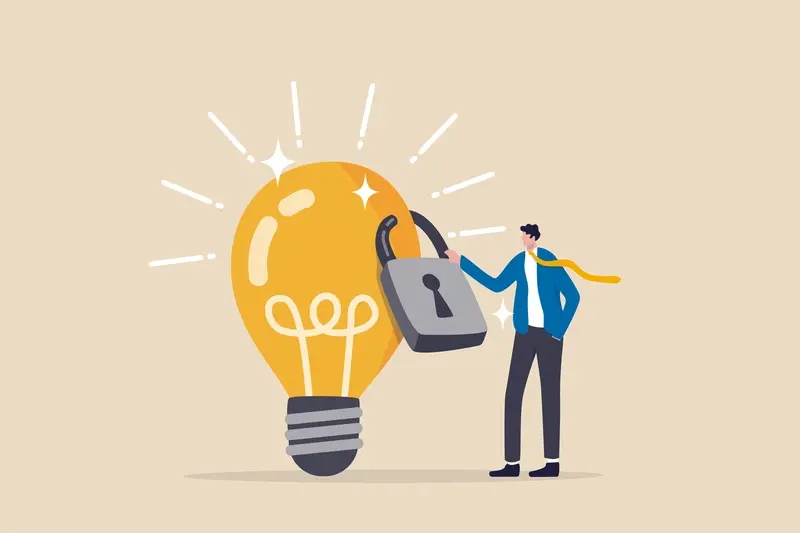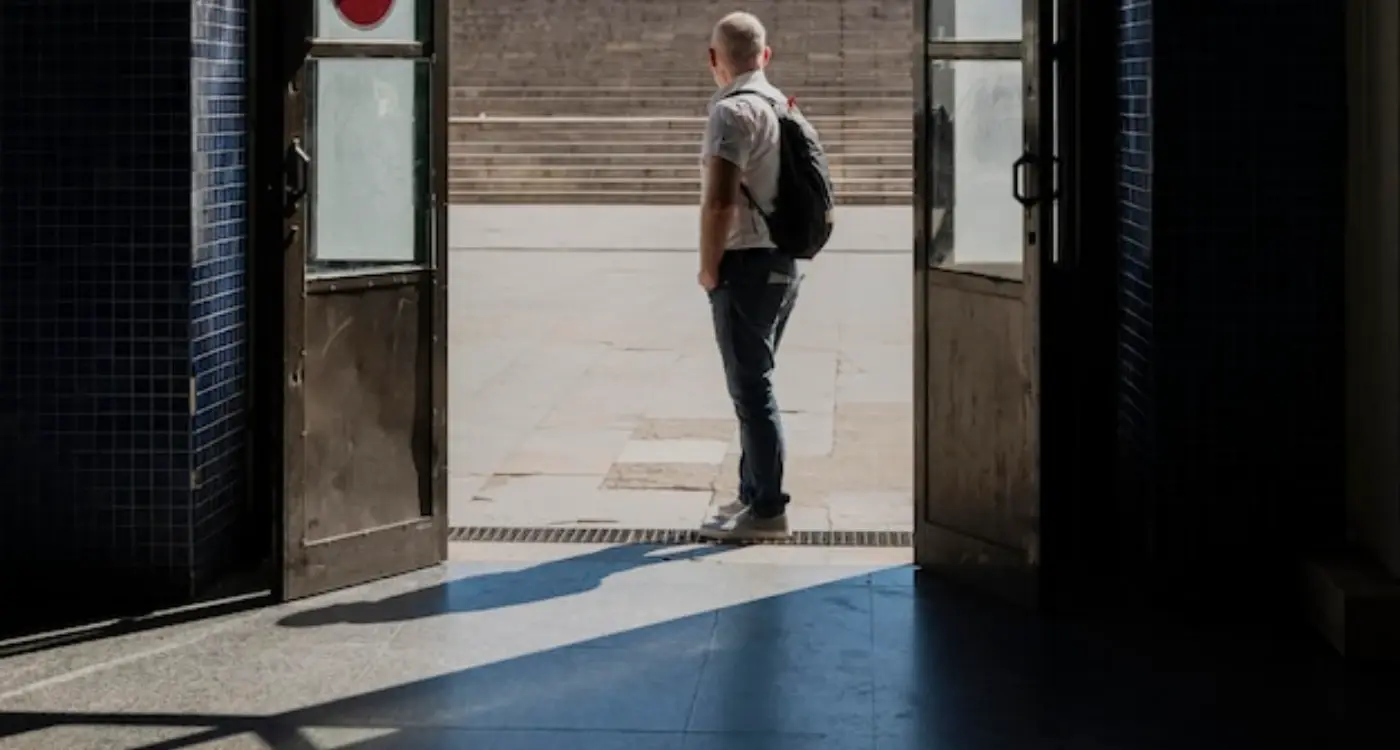Who Should You Trust With Your App Idea Before Launch?
You know that feeling when you've got this amazing app idea bouncing around in your head? The excitement is real—but so is the fear. Who can you actually trust to share it with before launch without risking someone stealing your concept and running off to build it themselves?
I've worked with hundreds of entrepreneurs over the years, and this question keeps them up at night more than almost anything else. The paranoia is understandable, honestly. You hear stories about ideas being "borrowed" or competitors appearing out of nowhere with suspiciously similar apps. But here's the thing—keeping your idea completely secret can actually hurt your chances of success more than sharing it strategically.
The reality is that most successful apps aren't built in isolation. They're refined through conversations, feedback, and collaboration with the right people. The key word there being "right." Not everyone deserves to hear your idea, and not everyone who hears it needs to know every detail. But some people are absolutely worth the risk—and knowing who those people are can make or break your app's future.
The biggest risk isn't someone stealing your idea; it's building something nobody wants because you were too scared to get proper feedback
This guide will walk you through exactly who you can trust with your app idea, when to share it, and how to protect yourself legally while still getting the input you need. Because at the end of the day, execution matters far more than the idea itself—and good execution requires trusted advisors, not secrecy.
Understanding Intellectual Property Basics
Right, let's get the scary legal stuff out of the way first—intellectual property isn't as complicated as lawyers make it sound, I promise! When you've got an app idea, you basically own three types of intellectual property that matter: your concept, your code, and your brand elements. Think of it like owning different parts of a house; you need to know what bits are actually yours.
Here's the thing that surprises most people: you can't actually copyright or patent an idea on its own. I mean, if that were possible, someone would've patented "an app that connects people" years ago and Facebook would owe them billions! What you can protect is how you execute that idea—your unique code, your specific design elements, your brand name, and the particular way your app solves problems.
What You Actually Own
- Copyright on any code you write (this happens automatically)
- Copyright on your app's design, graphics, and written content
- Trademark rights on your app name and logo (once you start using them commercially)
- Potential patent rights on truly novel technical processes (rare and expensive)
- Trade secrets—basically anything you keep confidential that gives you an edge
The reality is, most app ideas aren't as unique as we think they are. I've seen countless clients worry about someone "stealing" their social media app idea, not realising there are already hundreds in development. What makes apps successful isn't the original idea—it's the execution, the user experience, and frankly, the marketing budget.
But here's what you should actually worry about: someone taking your specific solution, your code, or your brand identity. That's where the real value lies, and that's what intellectual property law is designed to protect.
Who You Can Safely Talk To
Right, let's talk about who you can actually trust with your app idea without losing sleep over it. After years in this business, I've seen people go to ridiculous extremes—some won't even tell their own mother what they're working on! But here's the thing: you can't build an app in complete isolation. You need feedback, guidance, and sometimes just a sanity check from other humans.
The safest people to start with are those bound by professional obligations. Your lawyer falls into this category—they literally cannot share your information due to client privilege. Same goes for accountants, business advisors, and other licensed professionals. These folks have their careers on the line if they breach confidentiality, so they're naturally protective of what you tell them.
The Professional Circle
Beyond legal professionals, there's a whole group of people whose livelihoods depend on keeping secrets. Business consultants, marketing advisors, and yes—app developers like myself—we all operate under strict confidentiality agreements as standard practice. Most reputable agencies won't even take a first meeting without some form of NDA in place.
Industry mentors and experienced entrepreneurs are another safe bet, but with a caveat. They've usually heard dozens of similar ideas and aren't interested in stealing yours—they're more focused on helping you avoid the mistakes they've made. That said, still get things in writing if you're sharing detailed technical specifications.
Always trust your gut feeling about someone. If something feels off during early conversations, it probably is—move on and find someone else to confide in.
- Licensed professionals (lawyers, accountants)
- Established business consultants with track records
- Experienced app development agencies
- Industry mentors with nothing to gain from your idea
- Business advisors operating under formal agreements
The key is finding people who have more to lose than gain by betraying your trust. These professionals already have successful businesses or careers—they're not looking to steal your idea and start over.
The Developer Relationship and NDAs
Right, let's talk about developers—because at some point, you're going to need one to actually build your app. And honestly? This is where things get interesting from a trust perspective.
I've been on both sides of this conversation countless times. Clients come to me worried sick about sharing their "million-pound idea" and I get it, I really do. But here's the thing—good developers hear app ideas all day long. We're not in the business of stealing your concept; we're in the business of building great apps for our clients.
That said, you absolutely should protect yourself with a proper NDA when discussing your project with potential development partners. Not because all developers are untrustworthy (we're not!), but because it's just good business practice. A solid NDA creates clear boundaries and gives everyone peace of mind to have honest conversations about your project.
What to Look for in a Development Partner
When choosing who to trust with your app idea, consider these factors about potential developers:
- Established business with a real address and company registration
- Portfolio of previous work you can verify
- Client testimonials and references you can actually contact
- Professional contracts and clear terms of service
- Willingness to sign your NDA without making a fuss about it
Here's something most people don't realise—reputable development agencies will often have their own NDAs they want you to sign too. We protect our processes, methodologies, and sometimes sensitive information about other clients. It works both ways.
The developers you should worry about? The ones who won't sign an NDA, can't provide proper references, or seem more interested in your idea than in understanding your business goals. If you're unsure about a developer's track record, you might want to learn how to verify a developer's previous client success stories before sharing sensitive details.
Legal Advisors and Professional Consultants
Right, let's talk about the people who are actually paid to keep your secrets safe. Lawyers and professional consultants have something called client privilege—which basically means they can't legally tell anyone about your app idea, even if they wanted to. It's like a superpower for keeping things confidential.
When I'm working with clients who have particularly sensitive ideas (think fintech apps handling money or healthcare apps with patient data), I always recommend they speak to a lawyer first. Not because anything's going to go wrong, but because its good to know where you stand legally. Intellectual property lawyers can help you understand what parts of your app idea can actually be protected and what can't be.
Here's the thing though—lawyers aren't cheap. You're looking at anywhere from £200-500 per hour for a decent IP lawyer in the UK. But if your app idea could genuinely be worth millions, that's money well spent. They can help you file patents if needed, draft proper NDAs, and give you peace of mind about app idea protection.
The best legal advice I ever got was simple: protect what matters, but don't let paranoia stop you from moving forward with your idea.
Business consultants and advisors are another safe bet. Most reputable consultants have their own NDAs and confidentiality agreements as standard practice—their entire business depends on discretion. They've usually seen hundreds of app ideas before yours, so they're not going to get excited and run off with your concept. Plus, they can give you honest feedback about whether your idea actually has legs in the market.
The key with professional consultants is making sure they're actually professional. Check their credentials, look at their client list, and don't be afraid to ask about their confidentiality policies upfront.
Friends and Family Considerations
Look, I get it—when you've got this brilliant app idea bouncing around your head, the first people you want to tell are the ones closest to you. Your mum, your best mate, your partner who's been listening to you complain about existing apps for months. It's natural, and honestly? There's nothing wrong with sharing your excitement with people you trust.
But here's the thing about friends and family—they fall into a bit of a grey area when it comes to protecting your idea. Sure, they love you and want you to succeed, but they might not understand the commercial value of what you're sharing. They could accidentally mention it to someone else, not out of malice, but simply because they don't realise its sensitivity.
The Good News About Inner Circles
Your close friends and family are generally the safest group to share with, mainly because they don't have competing business interests. They're not going to run off and build your app themselves (well, hopefully not!). They can provide emotional support, basic feedback, and sometimes surprisingly good insights—especially if they're in your target demographic.
Actually, some of the best early feedback I've seen comes from family members who aren't afraid to tell you your idea needs work. They'll be brutally honest in ways that professional contacts might not be.
Setting Basic Boundaries
Even with people you trust completely, it's worth having a quick conversation about keeping things quiet. You don't need formal NDAs with your sister, but a simple "hey, this is still under wraps" helps everyone understand the boundaries.
- Choose your inner circle carefully—not every family member needs to know
- Be clear about confidentiality expectations upfront
- Focus on getting emotional support rather than business advice
- Remember that good intentions don't always equal good judgment
- Consider their own social networks and how chatty they tend to be
The reality is that most successful apps started with someone sharing their idea with people they cared about. Just be smart about it, and don't share technical details or business plans until you've got proper protections in place.
Investors and Business Partners
When it comes to investors and business partners, things get a bit more complicated. These are the people who'll potentially put real money behind your app or join you in building the business—so naturally, they need more details than your average contact. But here's the thing: not all investors are created equal, and you need to be smart about how you approach them.
Professional investors—venture capitalists, angel investors, and established funding groups—generally won't sign NDAs. It's just not how they operate. They see hundreds of pitches and can't risk legal complications from every entrepreneur who walks through their door. The good news? Legitimate investors have reputations to protect; they're not going to steal your idea because their entire business model depends on trust and relationships in a relatively small community.
Always research potential investors thoroughly before sharing your idea. Check their portfolio, read about their previous investments, and look for any red flags or complaints from other entrepreneurs.
Business partners are different—they should absolutely be willing to sign confidentiality agreements if they're serious about working with you. Anyone who refuses to sign an NDA when you're discussing a potential partnership isn't someone you want to be in business with anyway.
When presenting to investors, remember that they care more about traction and market potential than your idea itself. Understanding what app metrics investors really care about can help you prepare presentations that focus on the right information.
Red Flags to Watch For
- Investors who seem overly interested in technical details rather than business fundamentals
- Partners who dodge questions about their background or previous ventures
- Anyone who pressures you to share everything immediately without proper legal frameworks
- People who can't provide references from previous deals or partnerships
- Investors who ask for exclusive review periods without genuine interest signals
The key is building relationships gradually. Share your vision and market opportunity first, then dive into specifics once you've established mutual interest and proper agreements are in place. Most legitimate investors and partners will respect this approach—it actually shows you're business-savvy rather than naive.
Industry Experts and Mentors
Getting advice from someone who's been in the trenches before you can be worth its weight in gold. Industry experts and mentors are often the safest people to share your app idea with—mainly because they've seen it all before and honestly? They're probably too busy with their own projects to steal yours.
The key is finding the right kind of expert for your specific situation. A fintech mentor won't be much help if you're building a gaming app, and vice versa. Look for people who've actually launched apps in your space, not just those who talk about it on social media.
Where to Find Quality Mentors
- Local startup incubators and accelerators
- Industry meetups and conferences
- Professional networks like LinkedIn
- University entrepreneurship programmes
- Online communities specific to your industry
- SCORE or similar business mentoring organisations
When approaching potential mentors, be upfront about what you need help with. Don't just say "I have this app idea"—explain the specific challenges you're facing. Are you struggling with monetisation? User acquisition? Technical decisions? The more specific you are, the better they can help.
Most experienced mentors will naturally respect confidentiality anyway, but don't be afraid to ask them to sign an NDA if your idea involves something genuinely proprietary. Good mentors understand this and won't be offended.
Getting the Most from Expert Advice
Remember that mentors are giving you their time for free—respect that. Come prepared with specific questions, listen more than you talk, and follow up on their suggestions. The best mentoring relationships develop over time, so don't expect all your answers in one coffee meeting.
One thing I've noticed over the years is that the best mentors often ask harder questions than you expect. They're not trying to discourage you; they're trying to save you from expensive mistakes they've seen countless times before.
Conclusion
Building a successful mobile app isn't something you do alone—and protecting your idea doesn't mean keeping it locked away from everyone. After eight years in this industry, I can tell you that the apps that succeed are the ones whose creators knew exactly when to speak up and when to stay quiet.
The truth is, your idea probably isn't as fragile as you think it is. What makes an app successful isn't the initial concept—it's the execution, the user experience, and how well you understand your market. I've seen brilliant ideas fail because the founder was too secretive to get proper feedback, and I've watched simple concepts become million-pound businesses because the team wasn't afraid to share, test, and refine.
Start with your inner circle: family, close friends, and trusted colleagues who can give you honest feedback without any commercial interest. Then expand carefully to professional advisors—developers like us, lawyers, and industry mentors—always with proper legal protections in place. NDAs aren't just pieces of paper; they're your safety net when discussing specifics with people who could genuinely help or harm your project.
Remember, the biggest risk isn't someone stealing your idea—it's building something nobody wants because you were too afraid to ask the right questions early on. The most successful app founders I work with are strategic about who they trust, but they're not paralysed by fear.
Your app idea deserves to see the light of day. Just make sure you're showing it to the right people at the right time, with the right protections in place. That's how great apps get built.
Share this
Subscribe To Our Learning Centre
You May Also Like
These Related Guides

How Do You Protect Your App Idea When Working With Remote Developers?

What Happens to Your IP When Developers Leave Your Project?



